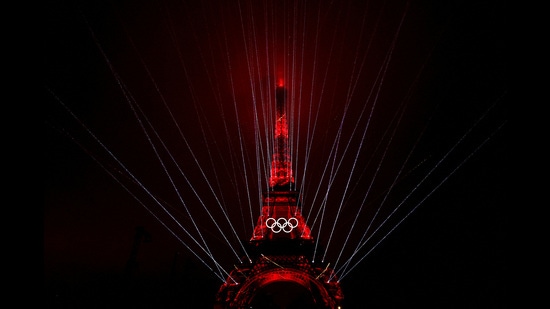Aug 09, 2024 09:07 PM IST
Public broadcasters cannot hope to keep up with the scale, speed, and ingenuity of the private sector. India must explore regimes that recognise this paradigm.
Be it the ongoing Olympics or the recent T20 World Cup, will these be sporting galas without their broadcast audiences? Watching sports has evolved into an immersive, interactive experience, and it is evident that sports productions are now as elaborate as any other category of content.

The journey of Olympic broadcasts has been remarkable. The first Olympic broadcasts were via closed-circuit televisions in a dozen viewing halls in Germany in 1936. The BBC first broadcast the Summer Olympics in 1948, mainly in the London area. Today, we have come a long way. Sports fans now have access to high-definition TV feeds, can stream behind-the-scenes action, and chat with fellow enthusiasts. They can watch live content on the go, listen to podcasts, access specialised statistics, play sports video games, and even create fantasy teams to test their sports knowledge in a competitive setting.
Despite the ubiquity of sports content, private broadcasters in India are required to share live feeds of sports deemed to be of ‘national importance’ with Prasar Bharati, allowing the public broadcaster to retransmit these free-to-air. This regime, established under the Sports Broadcasting Signals (Mandatory Sharing with Prasar Bharati) Act, was catalysed by the 2007 Cricket World Cup. At that time, India had around 110 million TV households, but only 60 million had private cable and satellite feeds. Doordarshan was the dominant broadcaster, and private channels were only emerging.
However, the Indian content ecosystem has evolved significantly since then. The country now boasts around 900 TV channels, up from approximately 300 in 2007, with 65% of viewers paying for TV. Moreover, smartphones have put free sports content in the hands of over 650 million users. A milestone was reached during the October 2023 India-Pakistan cricket World Cup game, which saw more digital viewers than TV for the first time. Some 173 million people watched the game on TV, while 225 million watched digitally. Similarly, JioCinema is streaming the Olympics in 4K. The mandatory sharing regime doesn’t align with the realities of multihoming and disincentivises private sector investments in quality production.
India should look to global best practices that preserve private rights while enhancing public access. For instance, Warner Bros. Discovery holds the rights to broadcast the Olympics in Europe. It has sub-licensed these rights to Europe’s public broadcasters since the International Olympic Committee requires that basic coverage be made free-to-air. In the United Kingdom (UK), this means the BBC has one live linear feed and one live streamed feed.
The UK also mandates that certain listed sporting events be broadcast free-to-air. However, it recognises the value of privately held broadcasting rights, which fuel the development of the British sporting ecosystem, much like in India. The BBC and private broadcasters consistently work collaboratively to negotiate sub-licensing deals where private broadcasters share rights with the public broadcaster.
A free-market approach is also possible. In the United States, there is no mandatory sharing of rights, as intellectual property is strictly protected. Consequently, American sports leagues are among the most well-resourced in the world and are often the first to adopt technologies like cloud computing, Artificial Intelligence, and the Internet of Things to improve both sporting performance and viewing experiences.
The National Basketball Association (NBA) exemplifies how private entities can innovate to increase accessibility for viewers. The NBA League Pass is a streaming service that allows fans from across the globe to watch live and on-demand NBA games. The Association has also partnered with Meta to offer immersive virtual reality experiences, putting fans virtually courtside. The NBA continuously explores new ways to engage fans, shaping the future of sports viewing globally.
In any case, public broadcasters cannot hope to keep up with the scale, speed, and ingenuity of the private sector. India must explore regimes that recognise this paradigm and respect commercial rights. While there is a case to be made that every Indian should be able to watch the Olympics, this argument doesn’t necessarily extend to each notified sporting event, a list that belies our cricket obsession covering all one-day, test, and T20 matches featuring India. And would public interest be harmed if Prasar Bharati were given feeds with a delay of a few hours? This would at least allow private broadcasters to maintain primacy over their intellectual property — a practice prevalent before 2007.
The Sports Broadcasting Signals Act was intended to develop sports, cultivate interest, and enhance accessibility. Since the private sector has filled all gaps in accessibility, public resources are better spent on building sports infrastructure, developing school curriculums, and empowering administrators. These are also the kinds of investments that help countries excel in the Olympics.
Vivan Sharan and Srishti Joshi are public policy experts working with Koan Advisory, New Delhi.The views expressed are personal
Story Saved


